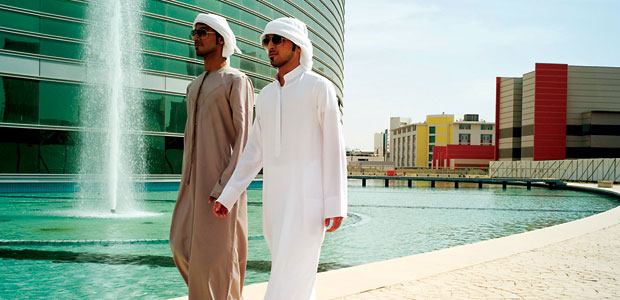
United Arab Emirates University is paralleling and supporting the nation’s rapid development without compromising quality, says Ali Rashid Al Noaimi.
The federation known as the United Arab Emirates was founded on 2 December 1971. Even as the fledgling nation was finding its feet, the president, Sheikh Zayed Bin Sultan Al Nahyan, was already articulating a vision for higher education: “The real asset of any advanced nation is its people, especially the educated ones, and the prosperity and success of the people are measured by the standard of their education.”
Sheikh Zayed wished to establish a flagship university that would give Emirati students a world-class education, generate the knowledge and skills required for rapid development of the country’s economy, civic institutions and social well-being, and contribute to solving some of the major challenges facing the Gulf region and the world.
The city of Al Ain was selected for the country’s flagship university. The location of modern-day Al Ain has attracted travellers, traders and settlers for more than 5,000 years. It is an oasis city irrigated by ancient falaj water systems (water that runs through a channel dug in the earth) and it is the birthplace of Sheikh Zayed.
The United Arab Emirates University opened just five years after the union of the seven Emirates. Its first students graduated in 1981. Over the ensuing 33 years it has produced more than 56,000 graduates, well over half of them female.
Development and growth of the UAE has proceeded quickly. Dubai and Abu Dhabi are now major international airline hubs and a third of the world’s population lives within a four-hour flight. The growth and reach of the higher education sector have matched the country’s development. There are now 79 tertiary institutions licensed by the country’s accreditation agency, most of them are private, for-profit and charge fees.
Free, high-quality undergraduate education for all UAE nationals was the initial focus of UAEU, enabled by substantial and sustained investment by the government. Today nearly 11,000 Emirati students are enrolled in degree programmes and university preparation courses. They come from all parts of the Emirates and about half live in student residences that are on or close to campus.
Adopting international standards was envisioned from the start. UAEU’s governance, policies and procedures reflect an adaptation of US-based systems and structures to the local context, and English is the language of instruction in most disciplines. One result of the international focus is great diversity in the teaching faculty: about 65 nationalities are represented. This is as high as any university in the world, according to Times Higher Education assessments and other university rankings.
International searches have facilitated the appointment of highly qualified faculty, mostly with doctorates earned from Western universities. They are research active and have welcomed the challenges associated with building an undergraduate teaching institution into a research-intensive university.
A key element of this transition has been planned growth in master’s and doctoral programmes. The first PhD students graduated this year. Graduate programmes are open to all qualified applicants regardless of nationality. In addition, research centres have been established in areas of national importance, such as water, health, public policy and energy. These developments were given a boost in 2010 when a new campus was opened with state-of-the-art teaching and research facilities and capacity for more than 16,000 students.
With such rapid growth and development, it would be easy for a university to lose focus on its mission and compromise on quality. Two initiatives have helped UAEU to avoid these pitfalls. First, we strive for improvements in the global university rankings to ensure that close attention is paid to our academic reputation, research and teaching performance, our faculty-to-student ratios, income and international outlook.
Second, we benchmark, through the international accreditation of many of our degree programmes (for example, with the Royal Society of Chemistry in the UK) and through international institutional accreditation, to ensure that we focus seriously on educational objectives, learning outcomes and preparing graduates who will contribute to nation building – as Sheikh Zayed intended.
Ali Rashid Al Noaimi
Vice-chancellor, United Arab Emirates University
Register to continue
Why register?
- Registration is free and only takes a moment
- Once registered, you can read 3 articles a month
- Sign up for our newsletter
Subscribe
Or subscribe for unlimited access to:
- Unlimited access to news, views, insights & reviews
- Digital editions
- Digital access to THE’s university and college rankings analysis
Already registered or a current subscriber?